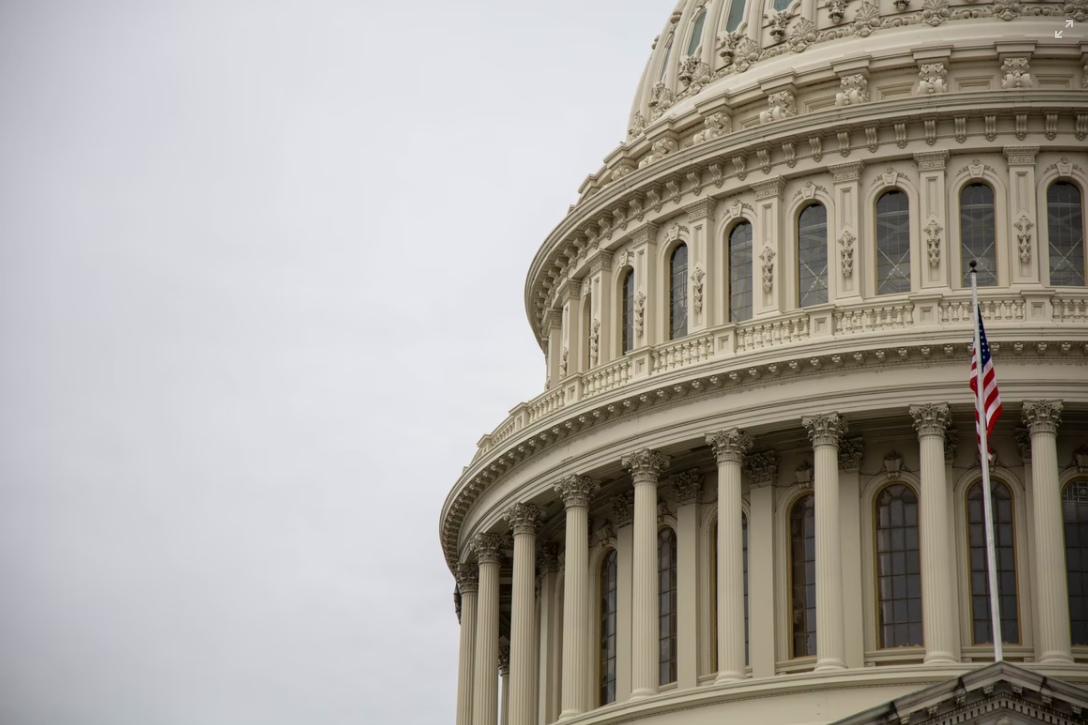You can’t engage in American politics today without hearing about extreme polarization and the urgent need for bipartisanship. The fear of hyperpartisan politics dominates political discourse across local and national media. But when looked at through a historian’s lens, bipartisanship has resulted in the most destructive domestic and foreign policies in recent history.
According to former President Obama, the narrative of hyper-partisanship in America is overblown. “When you go to other countries, the political divisions are so much more stark and wider,” said the president. “The difference between Democrats and Republicans — we’re fighting inside the 40-yard line.” The culture wars may be raging on, but recent memory has shown the Democratic and Republican parties put aside petty differences on several occasions.
In 1994, 46 Republican lawmakers joined a majority of Democrats to pass the Violent Crime Control and Law Enforcement Act, also known as the “‘94 Crime Bill.” Authored by Sen. Joe Biden, the Crime Bill expanded the death penalty, created three-strikes laws, which set mandatory life sentences for third-time offenders, and increased the power of police departments. The legislation also provided 100,000 new police officers and $9.7 billion in prison funding. Bipartisanship made the United States the world leader in incarceration.
The “war on terror” has also been a bipartisan campaign. In 2001, Democrats and Republicans authorized the invasion of Afghanistan 420-1 in the House and 98-0 in the Senate. Forty-five days after 9/11, 98 senators voted for The Patriot Act, which augmented the government’s authority to investigate everyday Americans by tracking their communications. And it was the Bush administration’s false claim that Saddam Hussein was hiding weapons of mass destruction that led Congress to approve the war in Iraq in 2003 in a bipartisan manner.
With that said, military spending rises every year with support from both parties. Under President Trump, the military budget for 2020 was approved 82-8 by the Senate and 377-48 by the House, giving $738 billion to the Pentagon. As recently as Sept. 2021, Democrats on the House Armed Service Committee joined Republicans to increase the Pentagon budget by $24 billion. In late Dec. 2021, President Biden signed the new largest “defense” budget in U.S history, with a total cost of $768 billion.
In times of economic collapse, there has also been solidarity between Republicans and Democrats to save the business community. In 2008, as global stock markets collapsed, frozen credit markets and critical financial institutions filed for bankruptcy. Together, Congress passed the Troubled Asset Relief Program, bailing out the banks without legal consequence. “They didn’t go to jail,” said Sen. Sanders in 2019. “They got a trillion-dollar bailout.”
Moreover, when the political and economic elite are on the same page, the people are left behind. A 2014 study reviewing survey questions between 1981 and 2002 revealed that average citizens and mass-based interest groups had little or no independent influence on public policy. Proposed policy change with low support among the wealthy passed less than a fifth of the time. Yet, massive Pentagon budgets, cyclical economic bailouts, and imperial authorizations were far more likely to pass through.
A much bigger problem than the need for bipartisanship is the profit-driven politician. More than half of members of Congress are millionaires, allowing corporate donors to supersede social welfare policy. The most recent example of this occurred when Republicans and two Democratic lawmakers, Joe Manchin and Kyrsten Sinema, actively blocked the Biden administration’s social spending package, including universal community college and climate reforms. Senator Sinema received $27,800 from PACs of pharmaceutical companies from July through September 2021, while Senator Manchin has over $5 million in assets from the fossil fuel industry.
Donor-whipped politicians dominate the political arena. The fingerprints of Wall Street, Big Pharma, and the military-industrial complex are all over U.S. elections. During the 2020 presidential election, President Biden told his donors that “nothing would fundamentally change.” Those remarks are similar to former President Obama’s statement at a meeting with bank CEOs in 2009, claiming it was his administration that stood between them “and the pitchforks.” It was as if the Constitution guaranteed the general welfare of the donor and not the people.
Instead of elected leaders being deeply committed to protecting poor and working people, they continue to preserve and enrich the ruling class. As long as capital owners can buy elections, bipartisanship is useless. In many respects, it is a threat by producing ruling class solidarity. When corporatists stand together, a war on everyday people becomes easier and easier.
Image by Joshua Sukoff is licensed under the Unsplash License.



